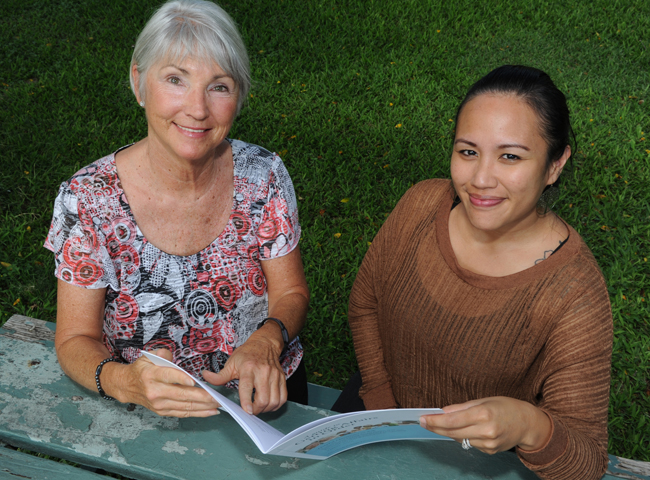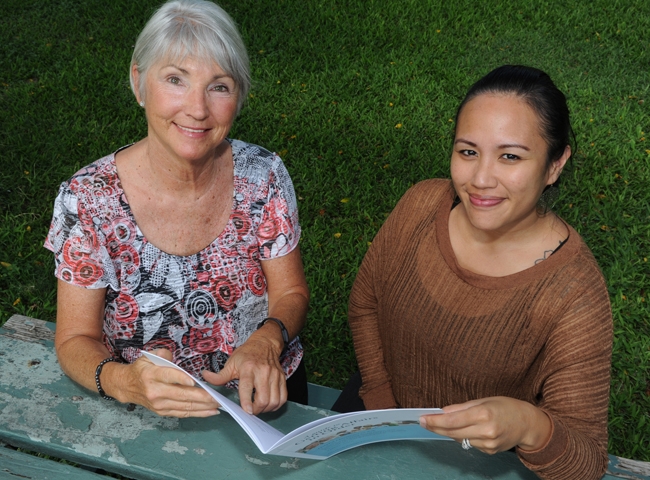Getting Your Affairs In Order
KAREN O’NEIL, Certified wellness counselor
Interviewed By Rasa Fournier
Where did you receive your training?
I attended the Hawaii Wellness Institute here on Oahu.
How long have you been working as a certified counselor?
Since 2008. My focus is helping people get their affairs in order. It’s something everybody needs to do, but nobody wants to talk about it. I want to take the scary and uncomfortable out of the conversation. My first workbook, A Guide to Getting Affairs in Order, was directed at people who have elderly parents, because we’ll all help somebody else before we’ll take care of ourselves.
End-of-life planning is such an awkward thing to begin, so I guide people through what to ask their parents and what documents they need to have. I speak at retirement homes and I impress upon people that they need to have an Advance Health Care Directive and durable power of attorney.
The Advance Health Care Directive comes with the durable power of attorney, but it can be just for medical, and not necessarily for the financial side. Most people do need a will or a trust. They need to know where to put these documents and how to tend to their bills, life insurance, etc. I find that many people don’t really know what their parents want.
Especially with families today, many are split between Hawaii and the Mainland. They come over here from the Mainland to tend to their parents and they don’t know who their parents’ best friends are, so they don’t know whom to contact. They don’t know that their dad borrowed the neighbor’s lawnmower and they need to return it.
mw-dih-karen-oneil-2
What got you involved with end-of-life issues?
I experienced this myself, with my children. My ex-husband was diagnosed with three to six months left to live. I went to get help, and because he was still alive I could ask him everything. He lived only four weeks, so we barely had time. Had we not had that time with him, I can’t imagine what we would have gone through. My kids, even being young adults, could not have handled everything along with the trauma of the death. There was some solace in knowing we did everything he wanted.
That’s why I’m very passionate about this. One of the steps in my workbook is writing in the information that can go on a death certificate. One of the things it asks for is mother’s maiden name. I suggest asking how to spell that name. Begin with things that are nonthreatening, non-financial. A person’s physical wellness is directly tied to their emotional state. When they deal with an ailing parent, it can lead to their own health issues. So when they take care of this ahead of time, everybody has peace of mind. The family is protected, and when they’re going through the actual passing, there is some comfort knowing that they have everything in order.
Can you say something more about health care directives?
It’s also known as a living will. This form allows you to let your doctors and family know what kinds of medical treatments and life-prolonging procedures you want. This will help your family during a very difficult time and relieve them of the burden of guessing what measures are appropriate for you. For example, the person in charge of my health care directive is a friend because I don’t want that burden on my kids. It’s not just about filling it out and making sure someone’s in charge, but make sure that person’s OK with what you want. Also, the fact that the durable (the person making the decisions on your behalf) may only be for medical and not for financial can be confusing for people. I try to demystify that. A person may think they have given the power of attorney to someone, but if you are unconscious, that comes to an end. If you pass without coming back, now your affairs move to the domain of the beneficiary or successor trustee.
You’ve written one workbook?
I have two workbooks – a parent version and an individual version. My system is different from others because you don’t write in sensitive information such as bank account numbers. You write where you keep the important documents. My goal is to encourage communication between family members. If the families are estranged, it is even more important for some one to know where these things are. When you get to the part of what you want done – where you want your ashes spread – it always helps if you have it written down so no one can dispute it.
Another thing I talk about at workshops is what not to keep in the safe deposit box, which would be the will or trust, Advance Health Care Directive, and a durable, because depending on how the safe deposit box is set up, it could be sealed upon death.
If you need anything out of there, you can’t get to it.
On my website (gettingaffairsinorder.com) I have a free report with common mistakes to avoid and what to do when someone passes.







